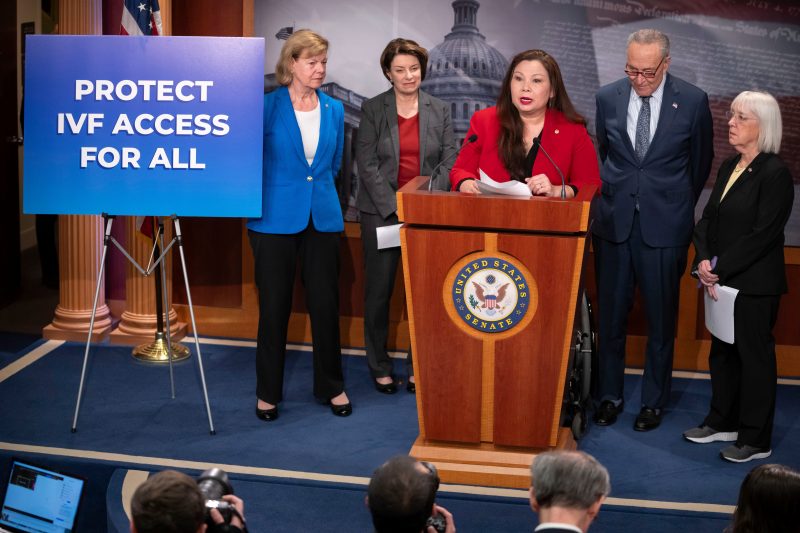In a recent turn of events, the United States Senate faced a controversial decision regarding a bill aimed at protecting In Vitro Fertilization (IVF) procedures, after a ruling in Alabama raised concerns about the future of reproductive rights. The bill, which aimed to safeguard the rights of individuals seeking fertility treatments, encountered strong opposition from Senate Republicans, ultimately leading to its blockage.
The Alabama ruling, which served as a catalyst for this legislative showdown, highlighted the vulnerability of IVF rights in the current legal landscape. Many feared that the ruling could set a precedent for further restrictions on reproductive technologies, jeopardizing the ability of individuals to pursue IVF as a means of starting or expanding their families.
Despite the widespread support for the bill from various advocacy groups and medical professionals, Senate Republicans raised objections based on concerns related to government overreach and ethical considerations. Some lawmakers argued that the bill lacked clarity on certain crucial aspects, such as the regulation of IVF clinics and the disposal of unused embryos, which fueled doubts about its overall efficacy in addressing the issues at hand.
Additionally, the political backdrop against which the bill was presented cannot be ignored. The broader debates around reproductive rights, healthcare access, and governmental intervention further complicated the decision-making process for lawmakers on both sides of the aisle. The divisive nature of these topics made it even more challenging to find common ground and reach a consensus on the proposed legislation.
As a result of the blockage, advocates for IVF rights and reproductive freedom expressed disappointment and frustration over the missed opportunity to enshrine protections for individuals seeking fertility treatments. The uncertainty surrounding the future of IVF regulations in the wake of the Alabama ruling only added to the sense of urgency for concrete legal safeguards to be put in place.
Moving forward, it remains critical for policymakers to engage in constructive dialogue and collaboration to address the complex issues surrounding reproductive rights and technologies like IVF. Finding a balance between ensuring patient autonomy, upholding ethical standards, and respecting diverse perspectives will be key to navigating these challenging waters and charting a path forward that serves the best interests of all stakeholders involved.
In conclusion, the blockage of the bill to protect IVF after the Alabama ruling serves as a stark reminder of the ongoing struggles and debates surrounding reproductive rights in the United States. While the road ahead may be filled with obstacles and disagreements, it is essential for lawmakers and stakeholders to continue working towards solutions that prioritize the well-being and autonomy of individuals seeking to build their families through assisted reproductive technologies like IVF. The stakes are high, and the need for thoughtful and inclusive policymaking has never been greater.



























